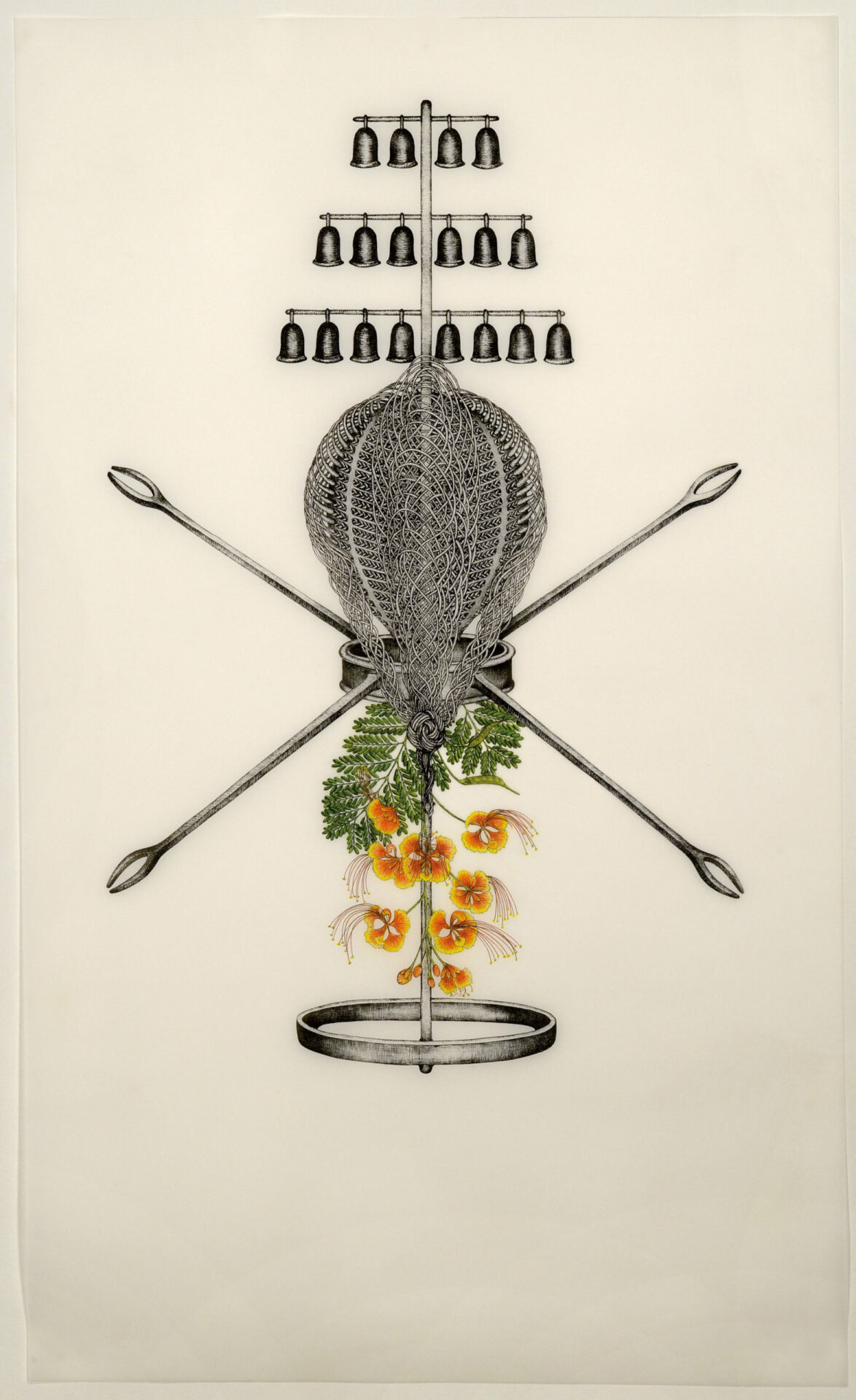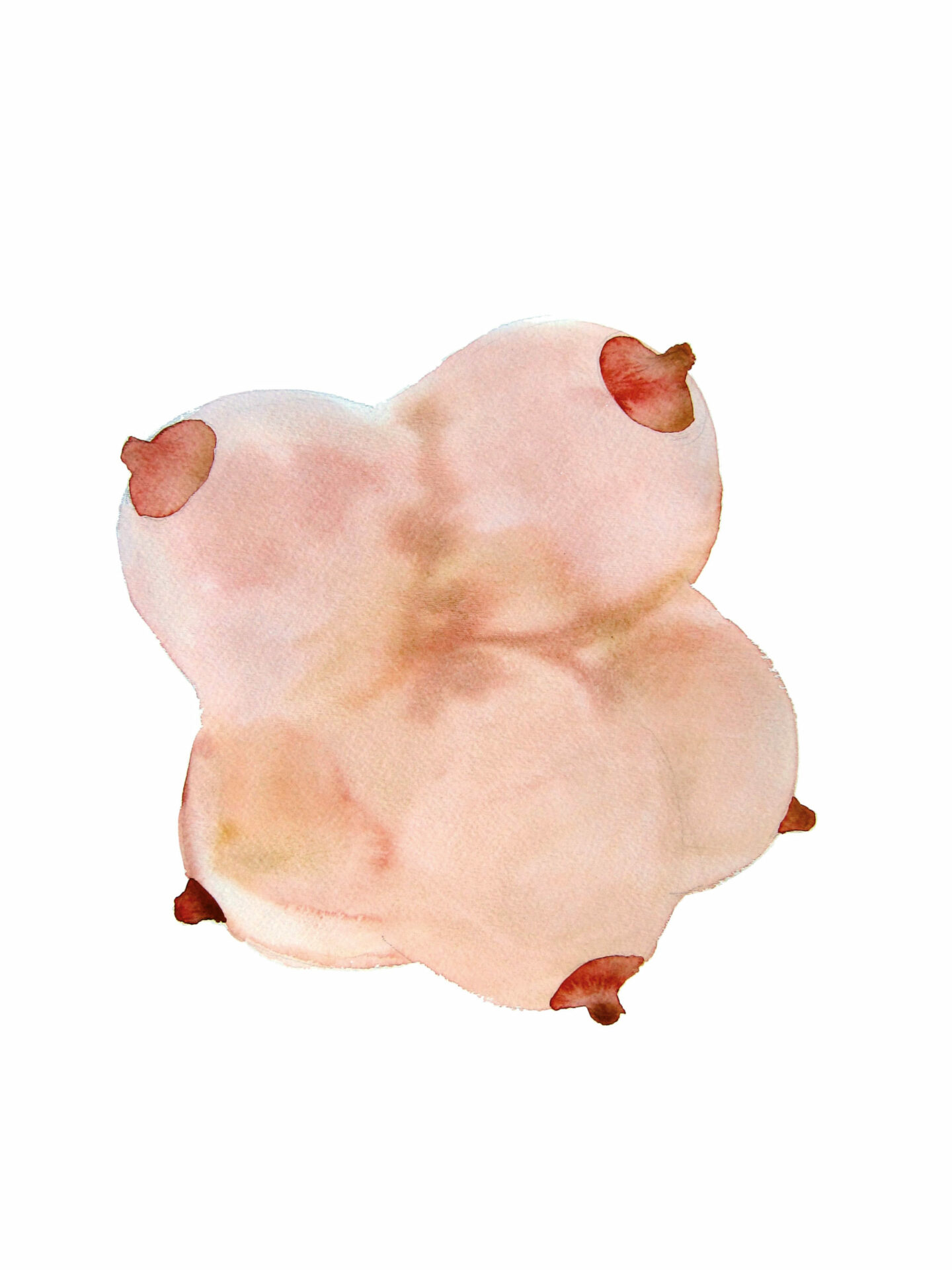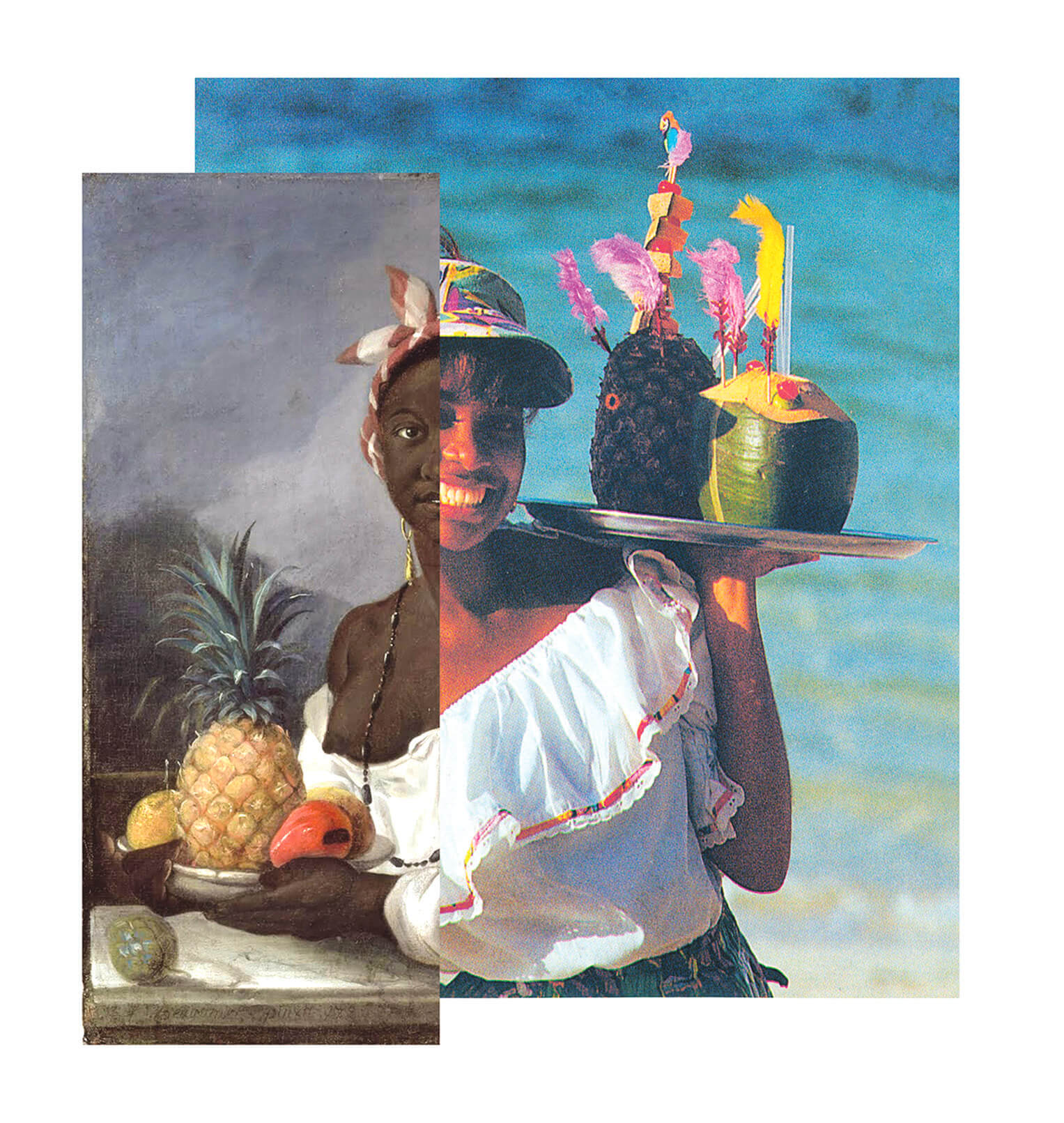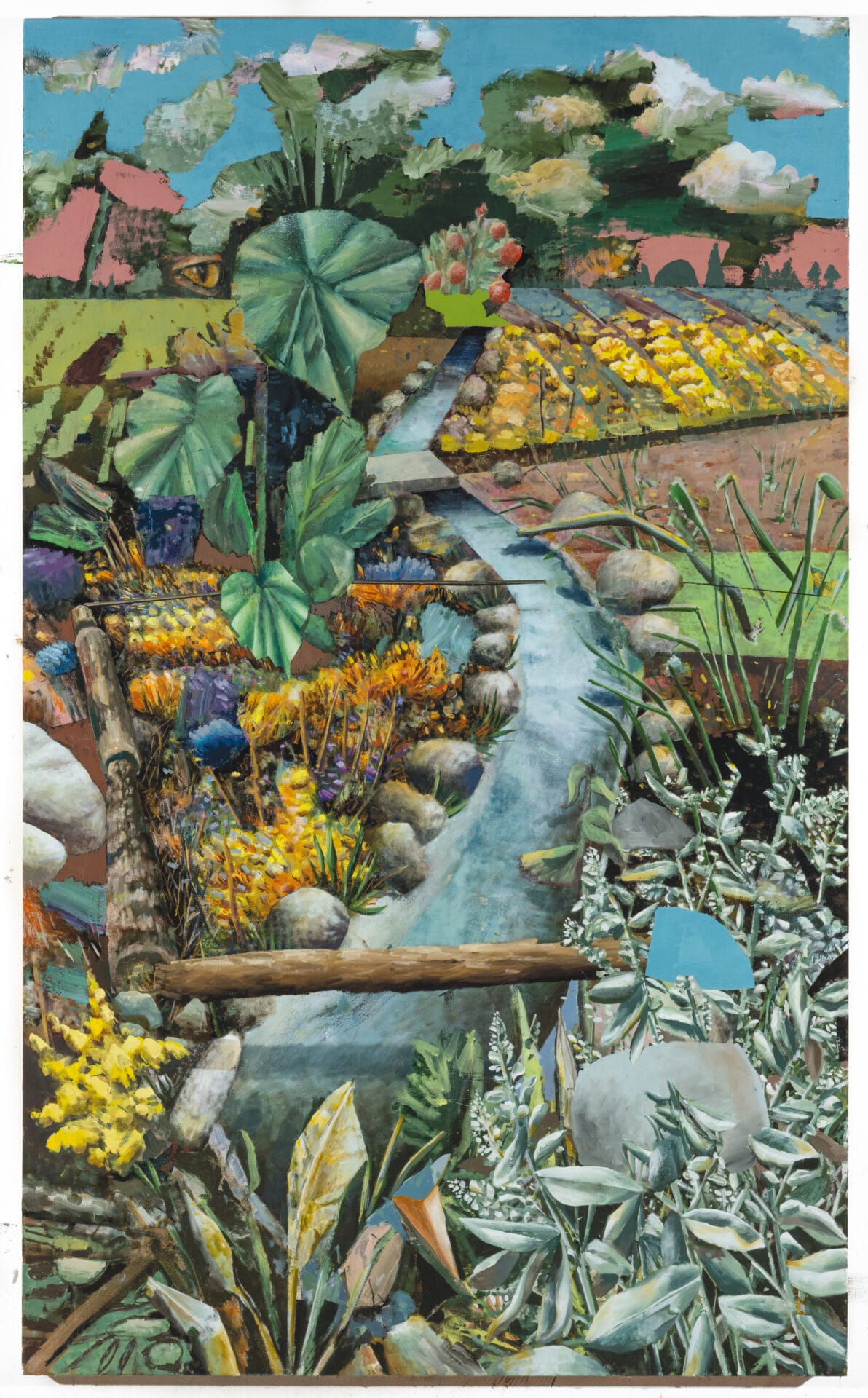
Photo : John Tamblyn, courtesy of the artist
Joscelyn Gardner’s work is based on the shared experiences of Creole women, both black and white, on Caribbean plantations in the eighteenth and early nineteenth centuries. Basing her research on portraiture of the colonial period, Gardner has also consulted various written documents: travel logs, volumes of natural history, abolitionist publications, administrative letters, and plantation registries. She applies a post-colonial feminist approach to her examination of the historical representations of Creole identity and rewrites the subjectivity of Creole women. Her aim is to subvert the documentary strategies of the era, which were used to marginalize the Caribbean Creole population and generally excluded, among other things, stories of colonial settlers’ sexual abuse of slaves. Gardner deals with the omissions — rape, torture — in colonial documentary history to give voice to women who have been neglected and forgotten.




